
Every single working day in Britain, two construction workers take their own life. Staff at K10 have undertaken mental health first aid training, funded by the Construction Industry Training Board (CITB), with the hope of breaking down the stigma of talking about mental health issues. We spoke to some of those involved about their experiences with mental health in construction.
Bill Hill, Chief Executive of Lighthouse – The Construction Industry Charity
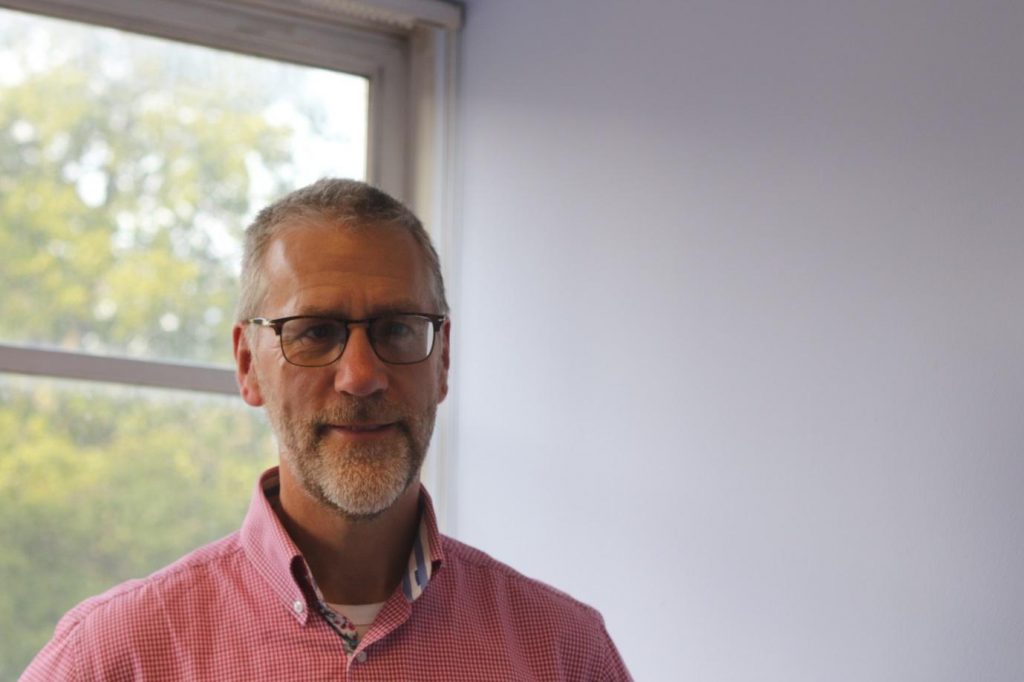
Mental health first aid (MHFA) gives people the skills to be able to detect individuals who may be suffering from mental health problems. The training equips you to broach a conversation, listen non-judgementally, with humanity and dignity, and to be able to enlist appropriate services to help that person seek professional help. It’s not counselling – you’re not taking charge of that person’s life – you’re helping someone get through the struggle with empathy.
I lead a MHFA training course on a site and later, when gathering feedback, I learned that somebody had come to a mental health first aider with suicidal thoughts. They were close to losing their home because of money problems and their relationship was at breaking point. So, as advised, they phoned the Construction Industry Helpline which offered financial support so they could pay their rent and arranged eight free counselling sessions. I’m pleased to say that because of the mental health first aider’s support, this person has managed to turn a corner.
Construction workers are three times more likely to suicide compared to any other industry. Around 400,000 working hours are lost each year through mental health issues, with many more unreported. Construction is still very male orientated and unfortunately, the male psyche often feels less able to talk about emotions and feelings. It’s going to be a long process to change the culture but we have a moral obligation to do so. I want the industry’s stigma around talking about mental health broken down, for everyone to feel valued and included and that they can talk about what’s important.
Adam Sapey, Chief Operating Officer at K10
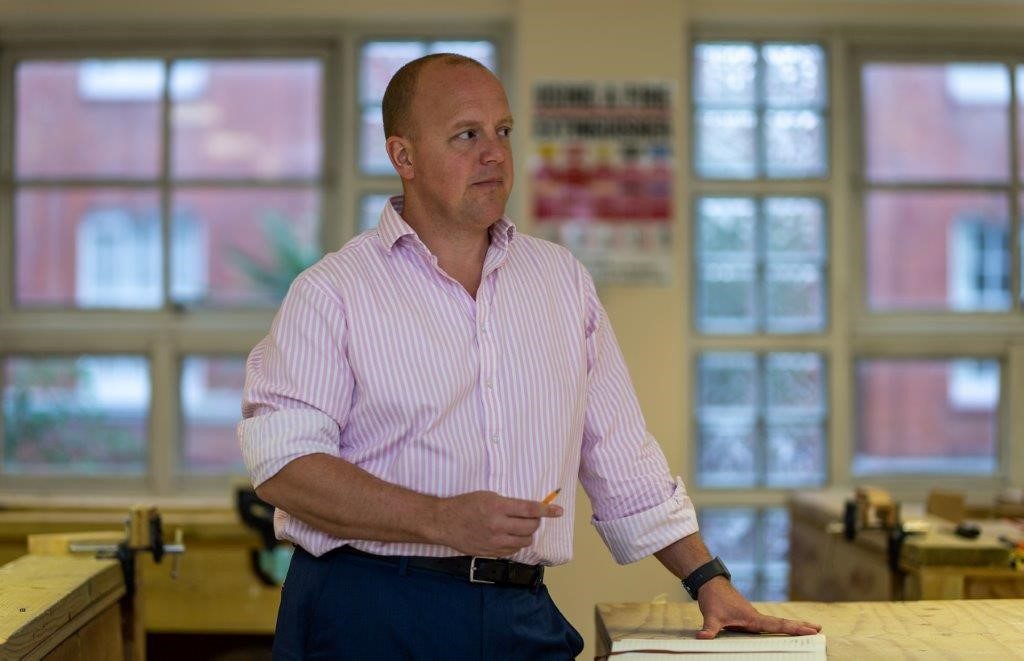
My family are all based in construction. My dad’s been a builder and plumber, my uncle is still working on site and most of my friends became tradespeople. We started K10 nine years ago and today, we employ up to 200 apprentices across London, mostly aged between 18 and 23 years old. Eighty-eight percent of our apprentices are unemployed when we take them on, and come from London’s most deprived boroughs, where academic attainment is sometimes low and unemployment is high.
Some of our apprentices face challenges to their mental health which we are painfully aware of. From 18-23 there are a lot of change to a young person’s life. They are taking on more responsibility both at home and on site and can be moving away from their original support network, or perhaps they don’t come from a stable home life – so we often see people suffering from things like eating disorders, self-harm and depression.
It’s so important for us as a business – one that is literally dealing with the next generation of construction workers and managers – to tackle this issue. Health and safety is the cornerstone of every project and we want to ensure mental health education is treated the same way, starting from day one. In 10 years’ time, I’d like to see MHFA be part of every construction apprentice’s induction training and, because of the nature of our business and the demographic we deal with, we’re in the position to get this off the ground and generate change.
Jacob Manzi, 22, Carpentry Apprentice at K10
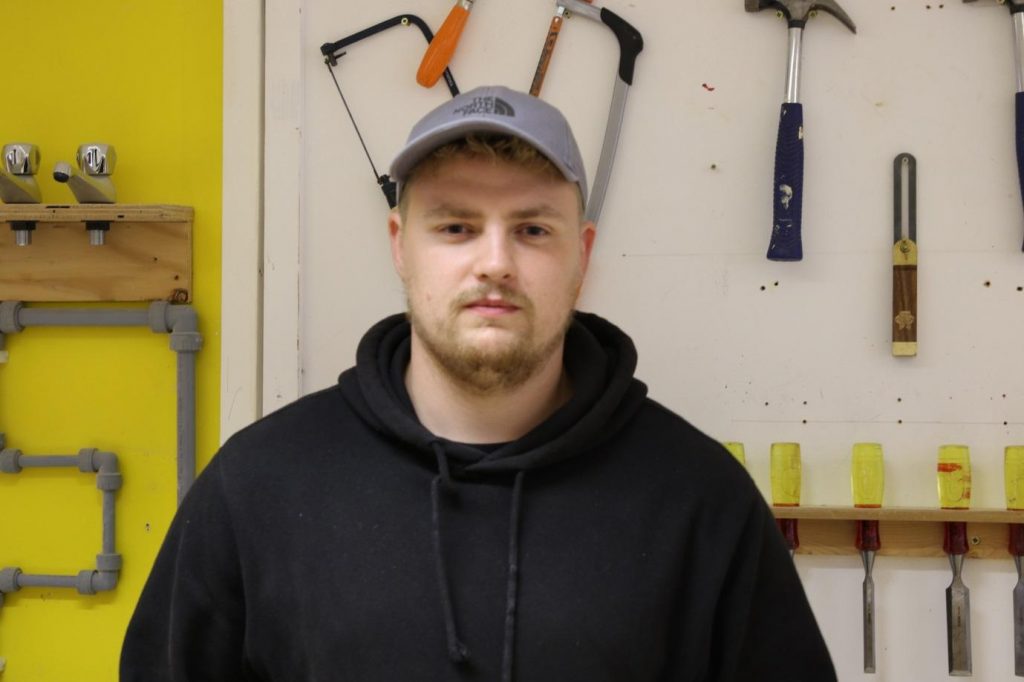
When you find out two people die each day, it’s hard to believe. On site, there can be a lot of banter, and you can tell it really gets to some people.
My friends go through issues where they talk about things, but it’s different with friends and at work. It’s much easier to notice among friends so I do tend to console them. If you can help one person, you help everyone.
I think mental health should be spoken about from a young age. I’m nearly qualified so I want to keep working on site and then have my own firm one day. Obviously if I have people working under me I want morale to be high and for them to feel as though it’s an open and safe environment which will help keep staff loyal and, in turn, help my business grow.
George Yoxall, 19, Site Management Apprentice at K10
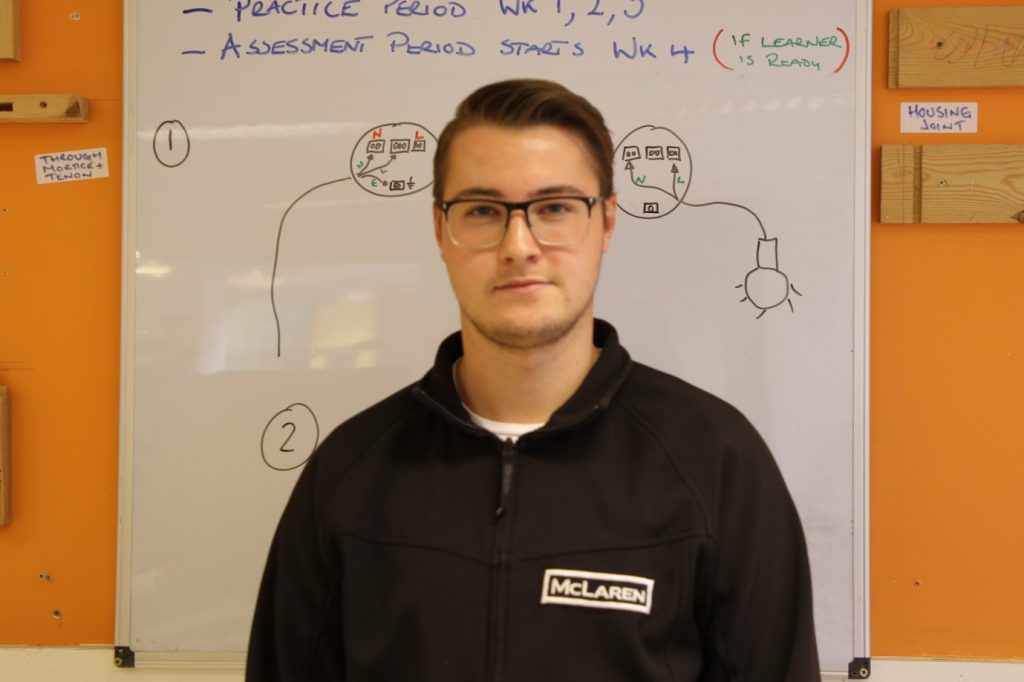
I think I was a bit oblivious to mental health issues in construction until now. I think when you’re young, you tend to let things slide and you don’t express yourself to anyone. Especially boys – they think it’s wrong or wimpy to talk about your feelings. But this training just shows it’s important too and there are so many different options available to help.
For me, it’s important to create an impact. If one person’s down and I go speak to them and help them, then we can create a ripple effect across the industry.
I’m going into management and will have to deal with not only my team but the whole site. If anyone you’re working with is looking down and you speak to them and help them, it’s not only going to benefit them but it will benefit you and your company.
Jack Speckman, Senior Apprenticeship Programme Manager
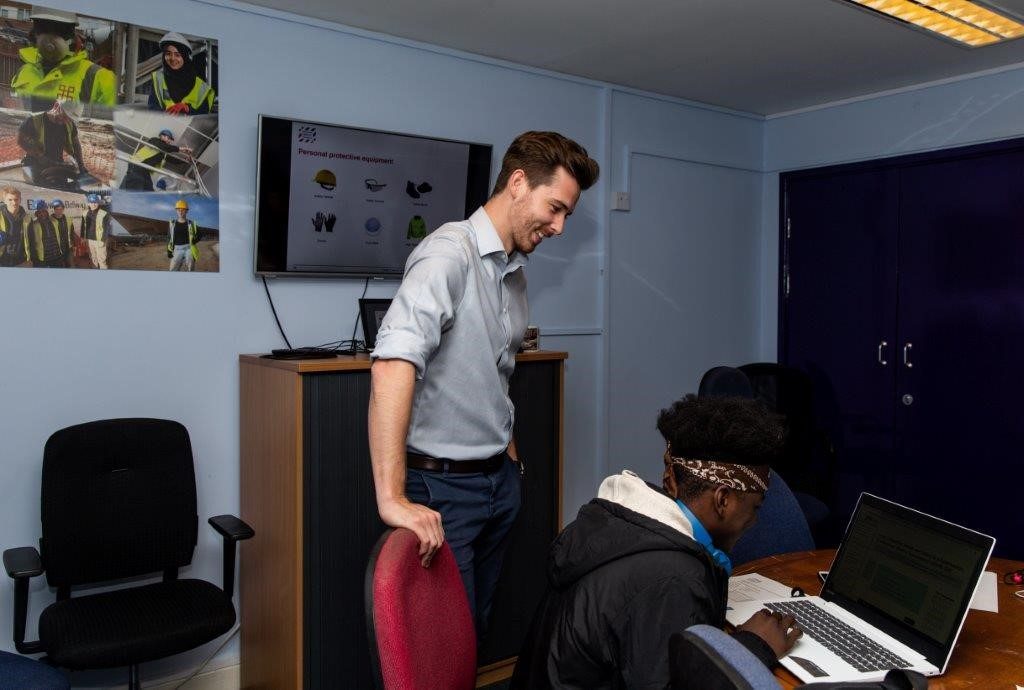
Before working at K10, I worked on site as a labourer. A lot of it is the male ego in an often tough environment – you’re on deadline and there can be money issues so you go on site and it can be like ‘come on, mate, sort yourself out’, which breeds a situation where people don’t feel comfortable talking.
I look after around 60 apprentices and check in with them frequently. It can be hard to find common ground with an 18-year-old, but you do start to see the signs of whether or not they’re alright. With MHFA training, hopefully I’ll now be able to have some more meaningful conversations and help them feel more comfortable talking about mental health. If my apprentices know I’m approachable and six months down the line they need me, they’ll know I’m willing and able to help.
It’s going to take time to change the industry mindset, but as we’re bringing in the next generation of tradesmen and women into the industry, we need to get in there early.
Peter Bannister, Senior Apprenticeship Programme Manager
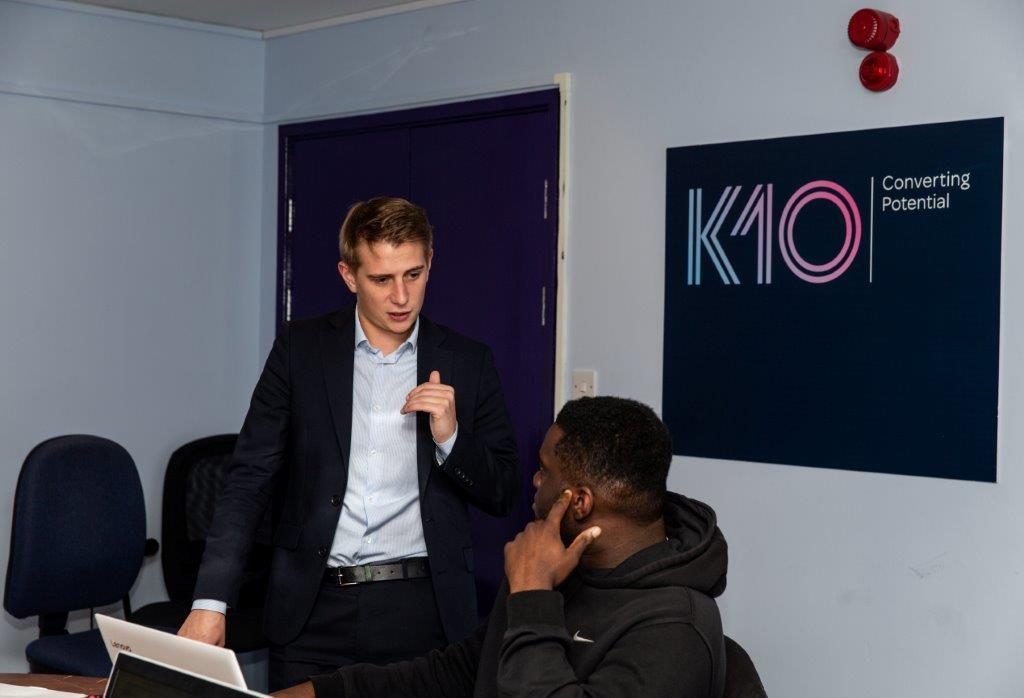
I work with apprentices from all sorts of backgrounds. Some come from lower socioeconomic areas, or whose families have financial issues. Some act as carers for family members with physical or mental health issues, others have no support network whatsoever and end up bottling it all up inside. We see our apprentices face-to-face regularly, so it’s good that we have a better understanding of potential mental health issues so that we can flag them and hopefully prevent anything bad happening.
On site, in the canteen at lunch time I’ve noticed that it’s divided. There are the macho people who dominate and the quieter, shy people who sit on their own. I’ve seen apprentices ostracized straight away if they don’t engage in banter – the dominant ones try and coerce the others. Having your first job and your first time on-site are really big steps for a young person and if you’re surrounded by older people having a laugh at your expense, it’s going to hurt.
It’s so important that we implement the MHFA training into our apprentices’ pre-employment training – we are looking out for their mental health as much as their physical body. And if we can give our apprentices a level of empathy that they can then impart among their peers, I think it would really change the culture of the industry for the better.
Claire Scrimgeour, Mental Health and Behavioural Change Advisor at Multiplex Construction

Mental health is something that is unfortunately still not completely openly discussed in the construction industry today. Organisations like K10 are instrumental in trying to change the perception of the issue amongst the next generation of industry workers.
Services and information available:
Construction Industry Helpline – 0345 605 1956